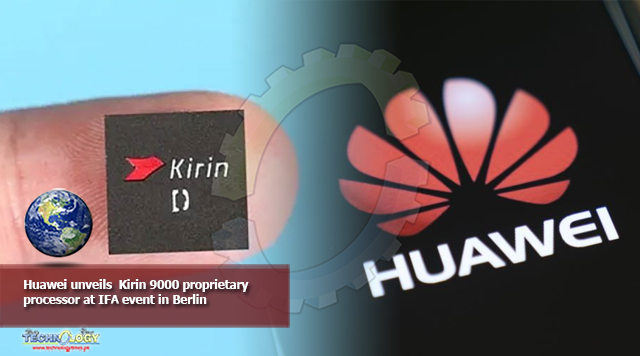Huawei will unveil the Kirin 9000 proprietary processor at the IFA event in Berlin on September 3rd. It is assumed that the company will present a series of flagships Huawei Mate 40. However, there is no official confirmation yet.

Due to the US ban, this chip could become the last in the Kirin family for Huawei smartphones, and the Mate 40 – the last true flagship of the company. However, there is tremendous pressure on the contract manufacturer to secure the release of the Huawei Kirin 9000.
TSMC is responsible for printing the Kirin 9000 chips, and the processor promises to be the world’s first 5nm chip for smartphones. It appeared on the market earlier than analogs from Qualcomm or Apple.
In response to the US ban, Huawei has previously increased orders for 5nm TSMC products. The Chinese manufacturer plans to purchase a maximum of Kirin 9000. Orders are only limited by the physical capabilities of TSMC’s 5nm manufacturing facility.
The company will ship to Huawei all released chips, both packaged and simply printed on silicon wafers. After that, the manufacturer will not be able to have any business relationship with Huawei, at least until the change in US policy on this issue.
TSMC Chairman Liu Deyin said at a July legal conference that the company has not accepted any new orders from Huawei since May 15. In addition, after September 14, Huawei will stop shipping.
According to the head of Huawei’s consumer division, Yu Chengdong, due to US sanctions, Huawei’s advanced Kirin series chips will not be able to be produced after September 15. For the first time, Huawei has officially confirmed the end of its Kirin chips.
Huawei is TSMC’s second-largest customer and generated approximately 15-18% of revenue in 2019. Sources in the supply chain say that under the threat of US sanctions, Huawei prepared last year to reserve a maximum share of TSMC’s 5nm production capacity.
In fact, Huawei Kirin 9000 has become a priority product for production. Before the printing of the chips stopped in mid-September, sufficient stocks were prepared for the release of the Mate 40 series – perhaps the latest flagship devices of the company.
TSMC’s capacities are maximally loaded with orders in the second half of the year with the release of chips from Huawei, Apple, and Qualcomm.
The US Department of Commerce is pursuing a series of measures aimed at, if not destroying, then significantly disrupting Huawei’s business. Not so long ago, all companies using any US technology were banned from working with Huawei.
Because of this, in particular, MediaTek will not be able to sell its chips to Huawei. It is not clear how the company will behave in the current situation when not only the smartphone business but also the production of 5G telecommunications equipment is under threat.
Originally published at Phone mantra